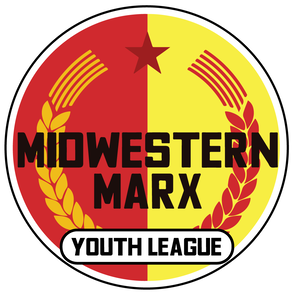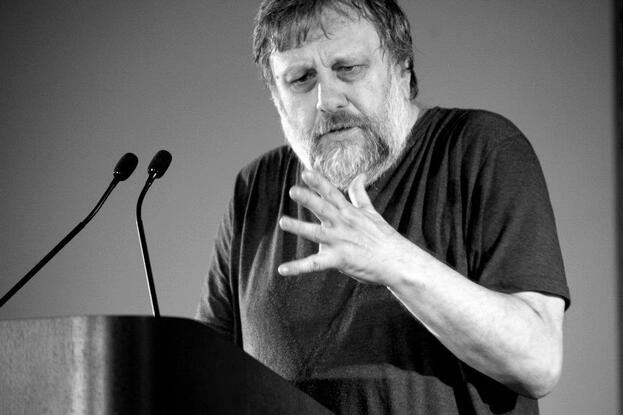|
5/13/2021 Book Review: Did Somebody Say Totalitarianism? By Slavoj Žizek (2001). Reviewed By: Harsh YadavRead Now"Freedom in capitalist society always remains just about the same as it was in the ancient Greek republics: freedom for the slave-owners." - Vladimir Lenin. Why am I quoting Lenin in a book about totalitarianism? Because he is a figure who propounds a very germane exegesis of the liberal democracy model which is acknowledged today as a symbol of prosperity and peace. Lenin called it the dictatorship of the bourgeois, rule of the capital, or rule of the upper class where there is only freedom for the slave owners. Whenever someone says Totalitarianism, several thoughts surface to the mind of the individual. They think about various governments that have restricted the rights of the people, took part in vanquishing opposition and fear-mongering, control all aspects of life for complete subjugation to authority by controlling mass media to spread propaganda. Totalitarianism became a political ideology with the advent of Fascism. Mussolini believed that the Corporate State is totalitarian and also wrote a book on it titled ‘The Corporate State’. Any individual interest or whatsoever was out of harmony with the interest of the State. The State corrals all of society. The idea that totalitarianism is integral political power that is exercised by the state was contrived in 1923 to elucidate Italian Fascism as a system that was fundamentally different from conventional dictatorships. Totalitarianism is not at all predictable and, in many instances, it's not even conspicuous. According to the dictionary, Political science is the branch of knowledge that deals with the state and systems of government or the scientific analysis of political activity and behavior. A policy state or system can be interpreted in many different manners. So political study is subjective and open to many interpretations but ignorance moves it to the objective side. This is what Žižek discusses in the book about totalitarianism. how it has been reduced to just a few interpretations and the fact that liberals don’t want to talk about what they call a ‘demonic’ political idea and denounces as ethically dangerous. Totalitarianism as an ideological concept has always had an explicit strategic function to guarantee the liberal-democratic hegemony by dismissing the Leftist critique of liberal democracy as the perfidious or Janus-faced of Right-wing dictatorships. Žižek looks at totalitarianism in a way that Wittgenstein would approve of, finding it a cobweb of family resemblances. Žižek reveals the unison view of totalitarianism, in which it is defined four ways: the holocaust as the ultimate, diabolical evil and beyond any political analysis; the Stalinist gulag as the alleged truth of the socialist revolutionary project which refutes socialism and radical progressive thoughts as they call it utopian and believe that utopian vision leads to totalitarian realities; the recent wave of ethnic and religious fundamentalism to be fought through multiculturalists tolerance; and the deconstructionist idea that the ultimate root of totalitarianism is the ontological closure of thought. Žižek starts the book by telling that trounce of the left is not because of the inanition of the intellectual resources but because of its ideological defeat against liberalism. The radical left is trapped in a facile opposition between the rhetoric of liberal democracy on the one hand and totalitarianism on the other. The book explains the psychoanalysis of the concept of Totalitarianism. Žižek can be called the seer of Lacan as his ideas drew heavily from Hegel’s Idealism and Lacan’s psychoanalysis and that’s why the book is more of a psychoanalytic study of totalitarianism than political. Lacanian psychoanalysis in itself is an intricate topic to comprehend, the book might help some to look at it in a clear sense. It’s important to understand Lacan to discuss liberalism as he believed that no matter how democratic we may be, we are always attracted to authority figures. We simply don’t want to take charge and want someone to lead. This concludes that Liberal democracy is still a rule of the insignificant minority over the significant majority and is less about representation and leads to the polarity of the power. Žižek in this book calls the discourse on totalitarianism pertinent because it helps to discern the shortcomings of the modern democracy but the problem he calls out is the misuse of the notion as any argument regarding it is rejected by calling it evil and this thwarts the intellectual development of the society giving rise to centrism which believes that any change in the status quo will eventually lead to totalitarianism. Žižek examines these ideas and concludes that the devil lies not so much in the detail but in what enables the very designation totalitarian: the liberal-democratic consensus itself which remolds itself into fascism in no time as it is governed based on capital. Authoritarianism is not pretending anymore to be a real alternative to the flawed democracies everywhere, but we can see many more authoritarian practices and styles being smuggled into democratic governments. Liberalism is a more sophisticated version of authority that is not about freedom and it can be best fathomed by studying Gramsci. In a totalitarian society the ruling class tells you to do this particular thing, in liberal democracy Ruling class through various institutions like family school, religion familiarizes us with rules and behavior and natural respect for the ruling class while maintaining a delusion around ‘Free Speech’. This is what Žižek in his lectures call the ‘Paradigm of modern permissive authority’. Regardless, Žižek raises interesting points. Does real democracy come only as an unanticipated paroxysm of ethical duty? Is the marking of diversity enshrouds totalitarian thought? Does magnum opus result from excessive knowledge? Do deeds emanate from prevailing ethical materiality or do they create it afresh each time they occur? Do cultural studies reveal the shapes of global hegemony? There is one point that Žižek misses out; the conflict between the divergent ideologies is not only because of the parochialism of liberal democracy but also the altercation between the Enlightenment and Counter-Enlightenment thoughts. Progressive politics is the outcome of Enlightenment thoughts which is the intellectual legacy of Marx that values freedom and equality. This is not an easy book at all. This is meant for research scholars. I (a chemistry Hons student) had difficulty reading but was able to complete this because the pop culture references made it very engrossing for those who are aware. I'll recommend it for those who want a different and very deep perspective of the liberal democratic model and good work on Lacanian psychoanalysis. AuthorHarsh Yadav is from India and has just recently graduated from Banaras Hindu University with a Bachelor of Science degree in Chemistry. Harsh is a Marxist Leninist who is intrigued by different Marxist Schools of Thought, Political Philosophies, Feminism, Foreign Policy and International Relations, and History. He also maintains a bookstagram account (https://www.instagram.com/epigrammatic_bibliophile/?hl=en) where he posts book reviews, writes about historical impact, socialism, and social and political issues. Archives May 2021
0 Comments
Leave a Reply. |
Details
AuthorWrite something about yourself. No need to be fancy, just an overview. Archives
February 2023
Categories
All
About the Midwestern Marx Youth LeagueThe Midwestern Marx Youth League (MMYL) was created to allow comrades in undergraduate or below to publish their work as they continue to develop both writing skills and knowledge of socialist and communist studies. Due to our unexpected popularity on Tik Tok, many young authors have approached us hoping to publish their work. We believe the most productive way to use this platform in a youth inclusive manner would be to form the youth league. This will give our young writers a platform to develop their writing and to discuss theory, history, and campus organizational affairs. The youth league will also be working with the editorial board to ensure theoretical development. If you are interested in joining the youth league please visit the submissions section for more information on how to contact us!
|


 RSS Feed
RSS Feed